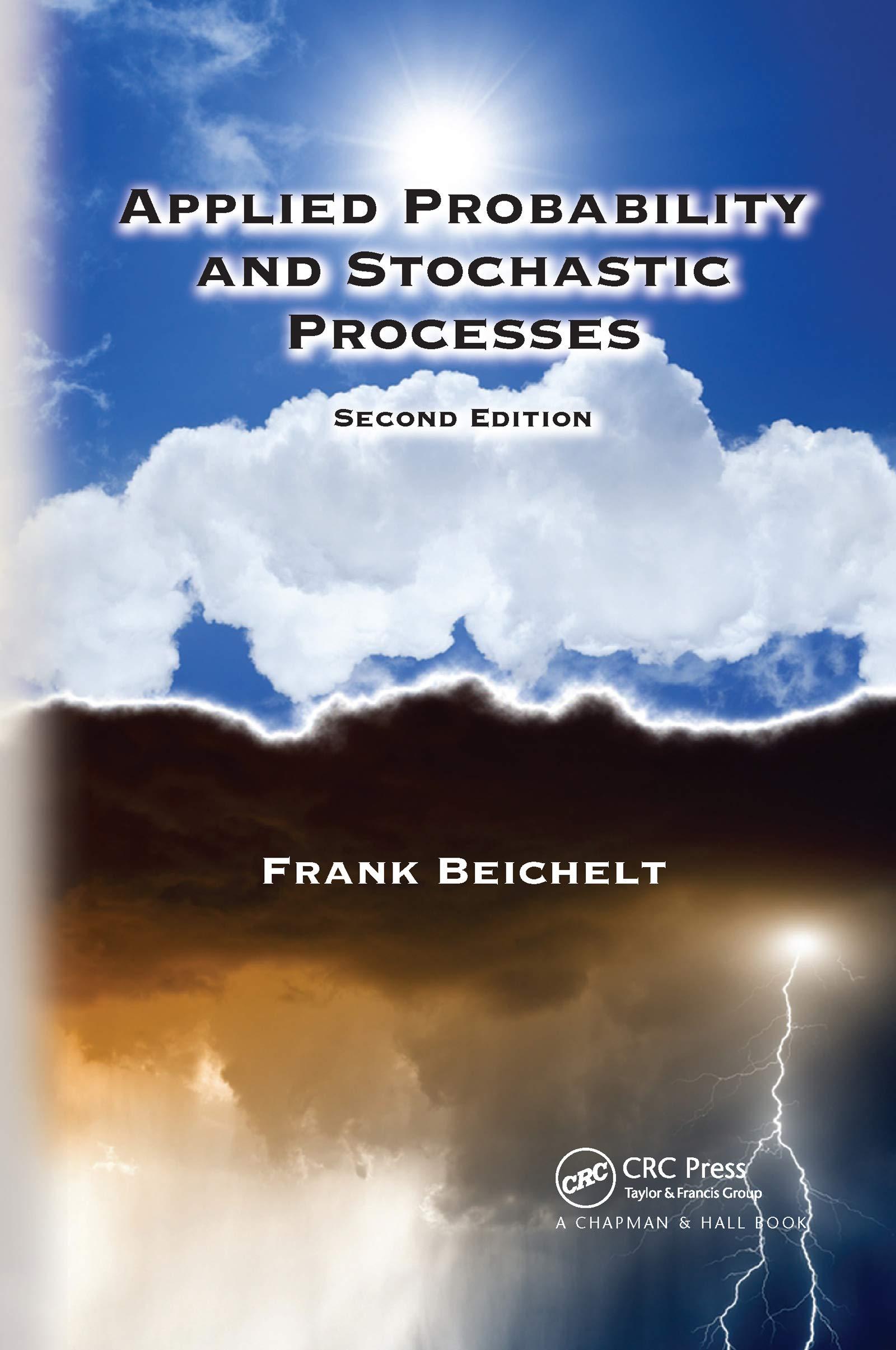The life cycle of an organism is controlled by shocks (e.g., accidents, virus attacks) in the following
Question:
The life cycle of an organism is controlled by shocks (e.g., accidents, virus attacks) in the following way: A healthy organism has an exponential lifetime \(L\) with parameter \(\lambda_{h}\). If a shock occurs, the organism falls sick and, when being in this state, its (residual) lifetime \(S\) is exponential with parameter
\[\lambda_{s}, \lambda_{s}>\lambda_{h}\]
However, a sick organism may recover and return to the healthy state. This occurs in an exponential time \(R\) with parameter \(\mu\). If during a period of sickness another shock occurs, the organism cannot recover and will die a random time \(D\) after the occurrence of the second shock. \(D\) is assumed to be exponential with parameter \[\lambda_{d}, \lambda_{d}>\lambda_{s}\]
The random variables \(L, S, R\), and \(D\) are assumed to be independent.
(1) Describe the evolvement in time of the states the organism may be in by a Markov chain.
(2) Determine the mean lifetime of the organism.
Step by Step Answer:

Applied Probability And Stochastic Processes
ISBN: 9780367658496
2nd Edition
Authors: Frank Beichelt





